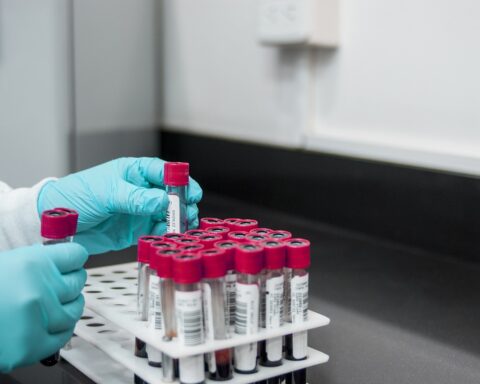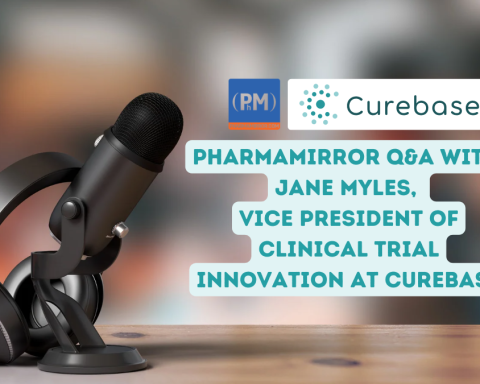The advent of NGS analysis software has unraveled immense potential for directing and carrying out basic biological research by offering unparalleled prospects for accurate prognostics, diagnostics, and therapeutics in various domains of healthcare.
The NGS analysis software aids the scientists in analyzing complex biological interpretations within the comfort of their homes instead of carrying out exhaustive, prolonged, clinical trials for the genetically stratified clinical trials.
The developments of NGS analysis software and tools have undoubtedly facilitated the analysts in executing a robust and accurate interpretation of the growing wealth of sequenced data. This breakthrough, in turn, has momentously aided the pharmaceutics in designing and developing safer and effective drugs for the prevention of diseases and ensuring high-quality patient-centric care.
A wide array of pharmaceutical industries are now opting for NGS-based technologies to assist the drug development process, as it has offered novel paradigms to direct the accurate clinical trials of target populations, aided in precise design and discovery of lead therapeutic targets and enhanced the understanding of approved or underdeveloped drugs. Thus, NGS analysis software coupled with high throughput data analysis tools have not only allowed transcriptomes and genomes to be systematically evaluated but has also empowered scientists across the world in easily utilizing NGS platform and technology for conducting research, prognostics, diagnostics and targeted therapies by leveraging the process of drug design and discovery.
This article aims to provide a precise overview of how NGS analysis can assist pharmaceutical companies in accelerating drug discoveries for medical usage.
Drug Discovery and Development
Target identification in pharmaceutical analysis serves as a preliminary step for the drug discovery process. The conventional methods used by many pharmaceutical firms for target identification involves the screening of biological targets to identify and validate the potential therapeutic effects by modifying the chemical structure of the lead drug in clinical trials.
In this context, the NGS analysis software platform not only serves as the driving agent for screening disease-associated mutations but also evaluates the ligand-based library for accurately diagnosing the disease progression in patients. NGS software analysis tools also complement high-throughput sequencing data to monitor the mechanism and response of drug resistance in the case of chemotherapeutics and antibiotics.
Furthermore, large-scale analysis of single nucleotide polymorphisms (SNPs) and Exome sequencing-based on bioinformatics protocols through NGS analysis software can accurately indicate mutated genes responsible for the underlying diseases. Thus, the implementation of recent advancements of NGS based technology in the pharmaceutical sector can provide biologically relevant and clinically meaningful insights to model novel drug discovery and design for rare ailments.
Polypharmacology
Polypharmacology involves the administration of various pharmaceutical agents inside the living body to identify the underlying disease pathway that binds to the multiple targets. In the recent decade, polypharmacology has been recognized as a valuable approach for drug discovery. The novel approach combines with NGS analysis software to allow multiple targets involved in the disease pathway to be discovered.
This useful information can then be used by pharmacologists, biologists, scientists, and researchers to acquire an effective pathway for designing potential drugs that could accurately bind to the target molecules.
Pharmacogenomics and Personalized Medicine
Pharmacogenomics is the field of research responsible for understanding and investigating which genes affect a person’s response to medications.
This field is relatively new, which combines pharmacology (science that studies the composition, properties and therapeutic action of medicines) and genomics (area of biology that studies genomes, their genes and their functions) to develop medicines more effective and safe; In addition to applying doses that adapt to the genetic makeup of a person.
Personalized medicine or precision medicine is the application of pharmacogenomics or pharmacogenetics to the clinical management of an individual. The objective of personalized medicine is to use omic data (eg, genomic, transcriptomic, proteomic, metabolomic, etc.) of a person to avoid or prevent diseases or to choose the best treatment and dosage scheme so that the treatment is safer and more effective for the patient.
One of the limitations for its application is the high costs of sequencing a genome; and although these have been decreasing substantially over the years, the introduction of NGS solutions has completely changed their fate.
The advent of NGS analysis platform has facilitated researchers with unprecedented opportunities to analyze the entire genome of a person which consequently highlights the patient’s variomes which impacts drug response.
In clinical trials, NGS coupled with pharmacogenomics has empowered biologists to predict the receptivity of drug therapy on the basis of the individual genetic makeup. Therefore, it is safe to say that NGS has allowed pharmaceutical industries as well as researchers to gain useful, medically relevant insights by screening pharmacogenomics genes in an instantaneous and cost-effective test.
Biopharmaceutics Development
Gone are the days when NGS was only utilized for providing insights pertaining to oncology and infectious diseases. With the recent advancements in bioinformatics, NGS has completely revolutionized the pharmaceutical world by strengthening knowledge about natural antibody repertoires (antibodies) and their response to microbial infections.
NGS has facilitated biomedical engineers to clearly understand the vast diversity of antibodies, which in turn allows them to design target-specific antibodies for pervasive therapeutic use. Proteomic techniques combined with deep sequencing can provide an enhanced picture of antibody clonal selection, humoral response and the chemical nature and structure of the landscape of binding antibodies.
As a result, the integration of the NGS platform into the domain of pharmaceutics can greatly facilitate in conducting a prospective investigation in understanding and engineering antibodies specific to disease conditions. This, in turn, can boost up the opportunities for drug design and development.
The article precisely discussed a few aspects in which NGS has accelerated the process of drug discovery and enabled the pharmaceutical industry to facilitate the increased informatics structure. Incorporation of these advancements in practice can completely revolutionize the pharmaceutical world and the drug discovery process.








